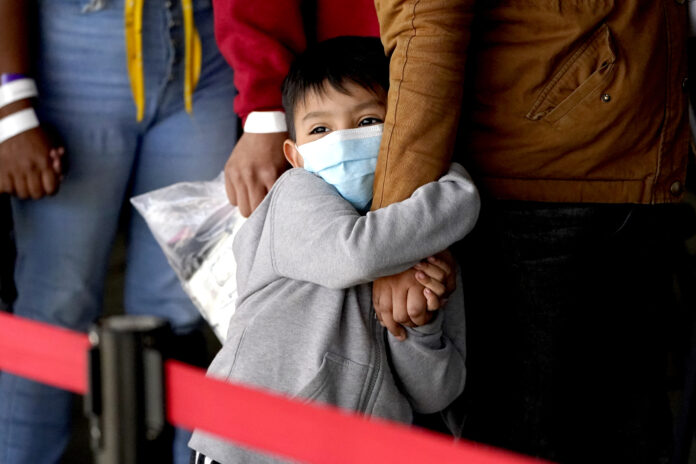
The City of Brownsville continues to see an increase of asylum seekers arriving in the country through the port of entry after the Biden Administration ended the Migrant Protection Protocol that was started in 2019, which forced asylum seekers to wait in Mexico while their cases were reviewed by the courts.
According to city officials, the city is receiving approximately 250 migrant drop-offs daily and continues to assess the “emergent border crisis.” All asylum seekers arriving into the city are tested for COVID-19.
Officials said all processes are overseen through the Federal Emergency Management Agency (FEMA) and the City of Brownsville has contracted the American Medical Response (AMR) to administer the COVID-19 testing.
“In reference to a migrant testing positive, families of the affected migrant(s) our Good Neighbor Settlement House coordinates proper accommodations for them to shelter and fulfill the recommended quarantine guidelines provided by the Centers for Disease Control,” the City of Brownsville said.
In March of this year, the city set up a tent on East Adams Street that is being used as an intake center by AMR for incoming immigrants, officials said.
During the same month, the city also started providing office space for the nonprofits aiding the asylum seekers in a building near the Casa Nylon. The nonprofits that have been using the space include Team Brownsville, Global Response Management, Angry Tias and Abuelas, Asylum Seekers Support, ProBar and Good Neighbor Settlement House.
Good Neighbor has been helping those asylum seekers who have been arriving at the bus station since January by providing them with assistance such as meals and other needed items so that they can continue their journey on their way to their final destination.
“Sometimes if a family is not able to afford a bus ticket, or an airline ticket, Good Neighbor will evaluate and see if we’re able to sponsor those families to get to their final destinations,” Executive Director at GNSH Hugo Zurita said.
Zurita said for a couple of weeks the numbers of asylum seekers arriving in Brownsville were decreasing but are back up again. Good Neighbor is also joining efforts with the City of Brownsville to avoid the spread of COVID-19 and follow CDC guidelines for quarantines.
“We assist in quarantining them. The City of Brownsville is providing the testing, so say a family needs to quarantine, we coordinate with the City of Brownsville to find them a place so that they can quarantine,” he said.
Zurita said the vast majority of asylum seekers arriving in Brownsville don’t stay here and Good Neighbor’s main goal is to help them get to their destination.
He said there is also a lot of funding coming to help the asylum seekers from national organizations such as Save The Children, UNICEF and a lot of anonymous donors.
On Monday, Rio Grande Valley counties and the City of McAllen joined efforts to highlight what South Texas is experiencing due to the high number of migrants entering the country and being released into local communities by signing a temporary local disaster declaration, The Monitor reported.
Although Cameron County did not issue an emergency declaration, County Judge Eddie Treviño Jr., who serves as chairman of the Texas Border Coalition, sent Department of Homeland Security Secretary Alejandro Mayorkas a request for action from the Biden administration Monday, The Monitor reported.
Monitor Staff Writer Valerie Gonzalez contributed to this report.



